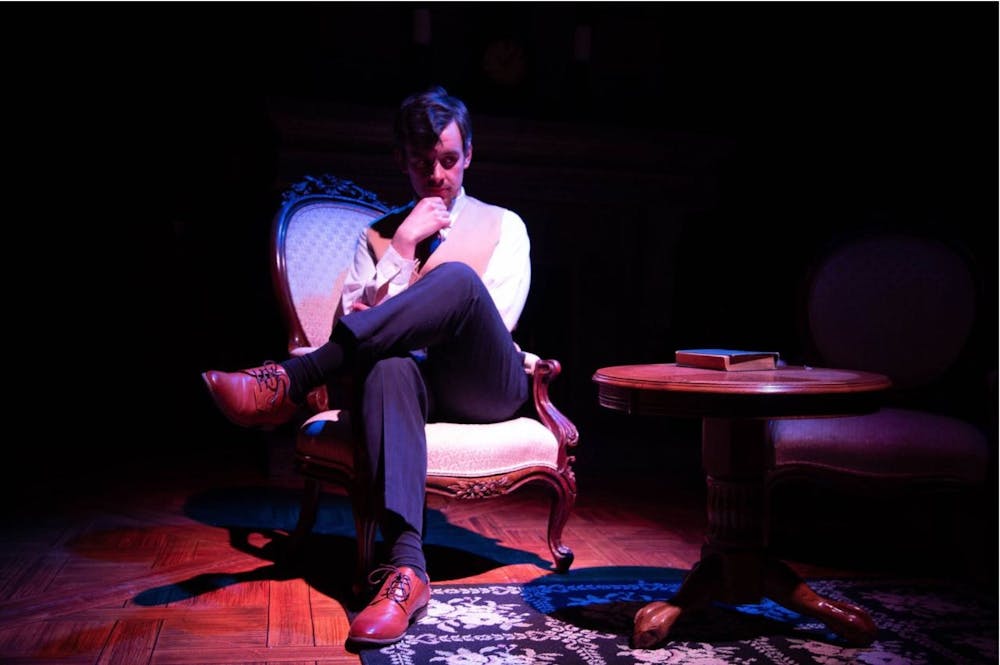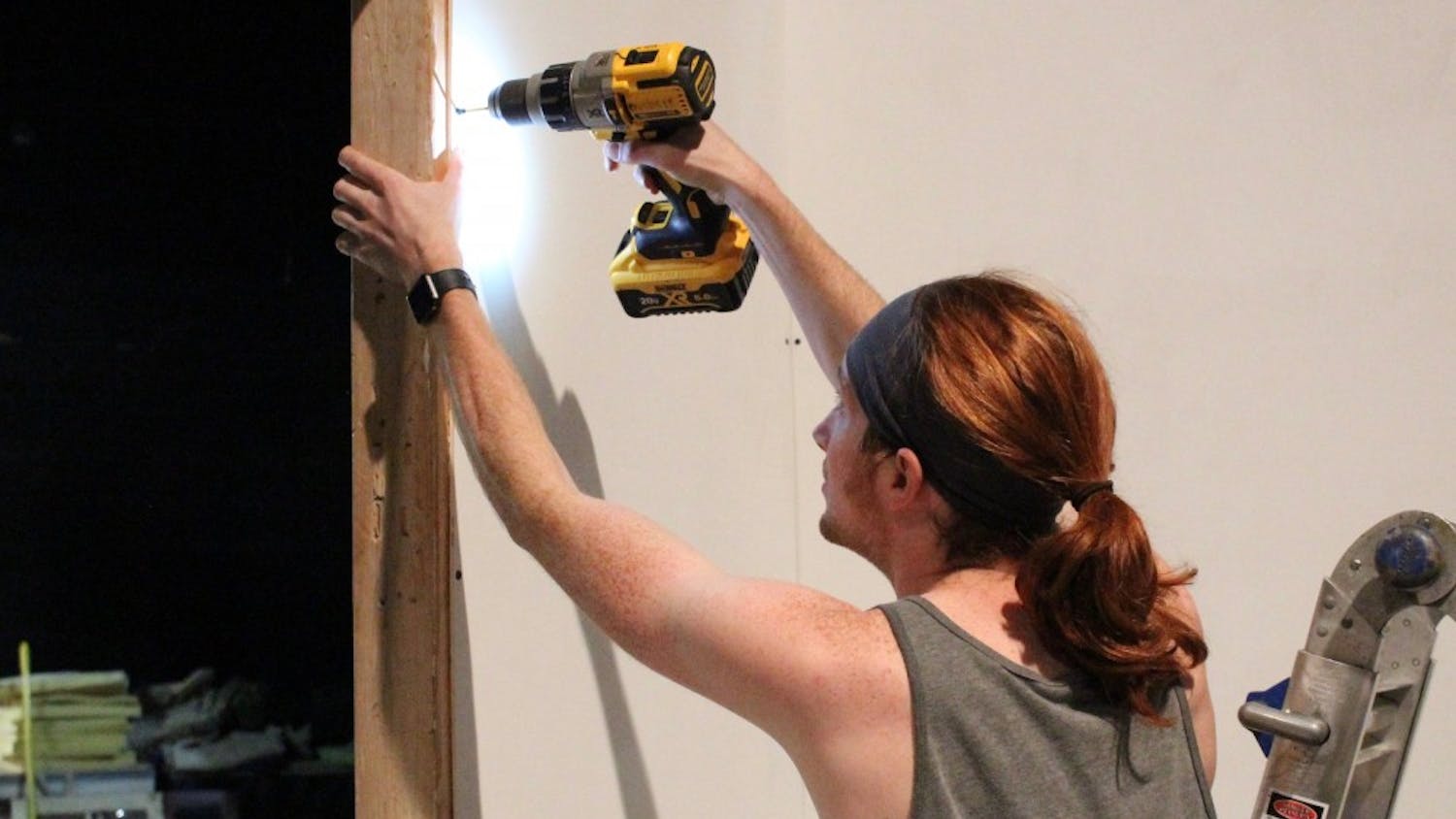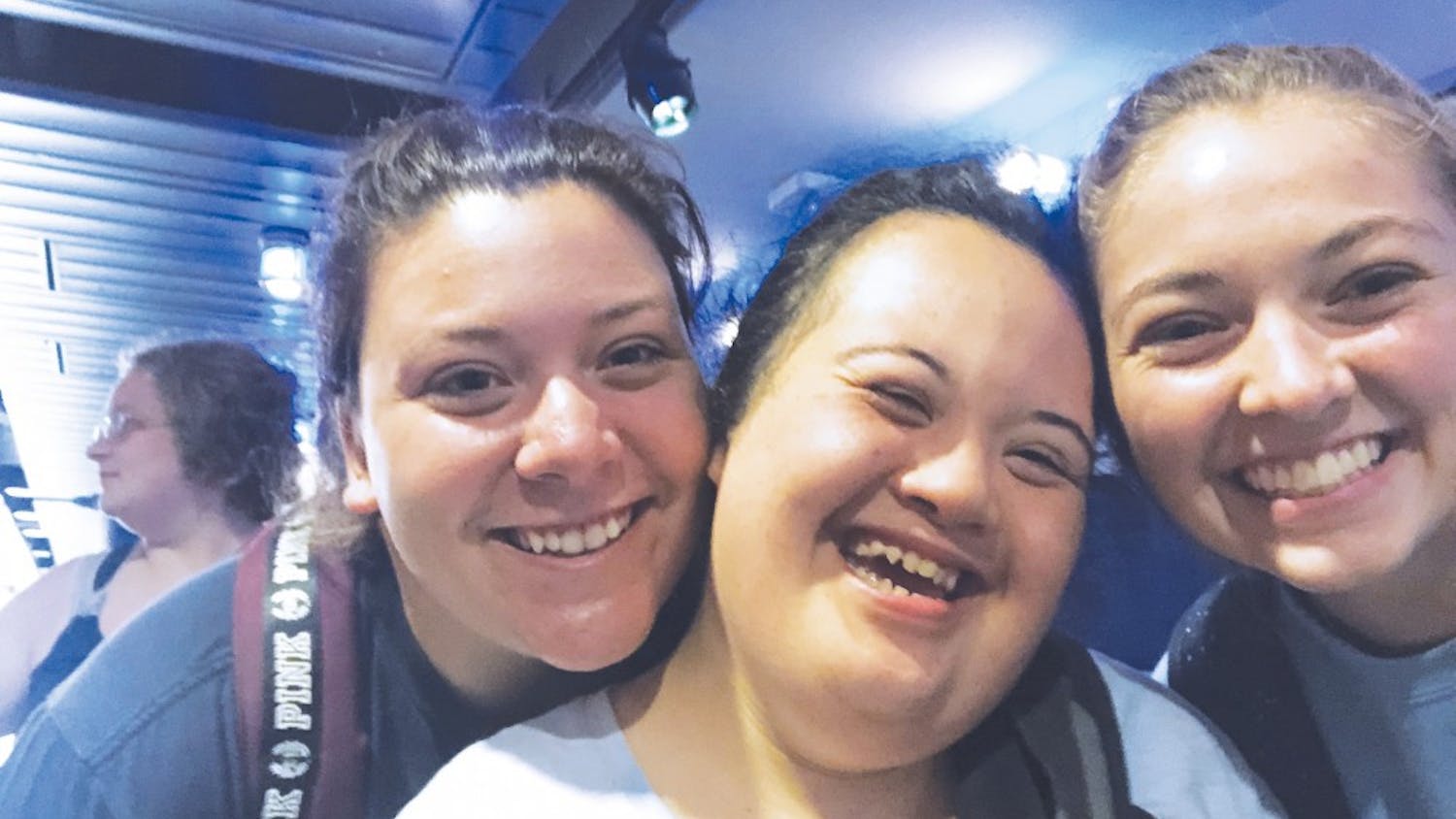Senior Tucker White has found community in the round.
White has been involved in the theatre department for several years, and has played parts in “Why We Must Die So Young” and “The Mousetrap.”
When White first enrolled at Taylor, acting was far from his thoughts. Although he had performed in high school productions, he was uninterested in performing with the theatre department at Taylor and he assumed they were uninterested in him. However, a friend convinced White to help out with a Taylor production and he became enamored with the community he found there.
White’s first production was “Why We Must Die So Young: The Story of the White Rose Martyrs” a story about German college students who resisted the Nazi regime during World War II. He played the part of Robert Scholl, a serious and stern father who was willing to stand for what is right and protect his family.
This production was unique in that it was the first time it was ever performed on stage. As such, the playwright, William Gebby, was heavily involved in the production. According to White, Gebby was a kind and gentle man who would gently guide the actors in their portrayals of the characters. He would make small rewrites to the piece as it was being rehearsed to make it sound and play more naturally.
“We were the tradition,” White said.
White explained that the process was unique because there were no other examples of how to play his part, which made it challenging.
White described the process by which he learned to play Scholl, saying that he tried to look at his peers like they were his children and feel this deep affection for them.
Ultimately, he credited the director and playwright for helping him in gaining an understanding for the character of Scholl.
White also performed in Taylor’s production of “The Mousetrap” by Agatha Christie. In the play, he played Major Metcalf, a somewhat mysterious guest at Monkswell Manor.
The character was very different from his previous role as Scholl. While Scholl was a very serious and almost perfect character, Metcalf was more mysterious and had a sly sense of humor, according to White.
In both of these performances, White found community within the theatre department. He explained that, during the production of “Why We Must Die So Young,” there were tremendous technical difficulties that had the cast and crew concerned about whether the production would be ready by the time of the first performance. Such mishaps, like when an actor was almost electrocuted, drove the cast into a deep sense of community as they rallied around each other to work through these problems.
However, the difficulties were worked out. After the issues were resolved, the director came to talk to the cast and crew and told them to remember this time as an example of God answering prayer, White said.
With regards to “The Mousetrap,” White found himself returning to previous work. With a smaller cast, he became much closer with his fellow actors as they bonded over the production and supported one another throughout. According to White, some of the actors had to go to some very dark places for their roles. The community supported them through those difficult times, and they grew very close by the end.
“It’s about giving other people the spotlight and serving others on stage,” White said.
Whether through a genuine and honoring portrayal or an enjoyable experience, White hopes that he managed to live this ideal through his work on the stage.





